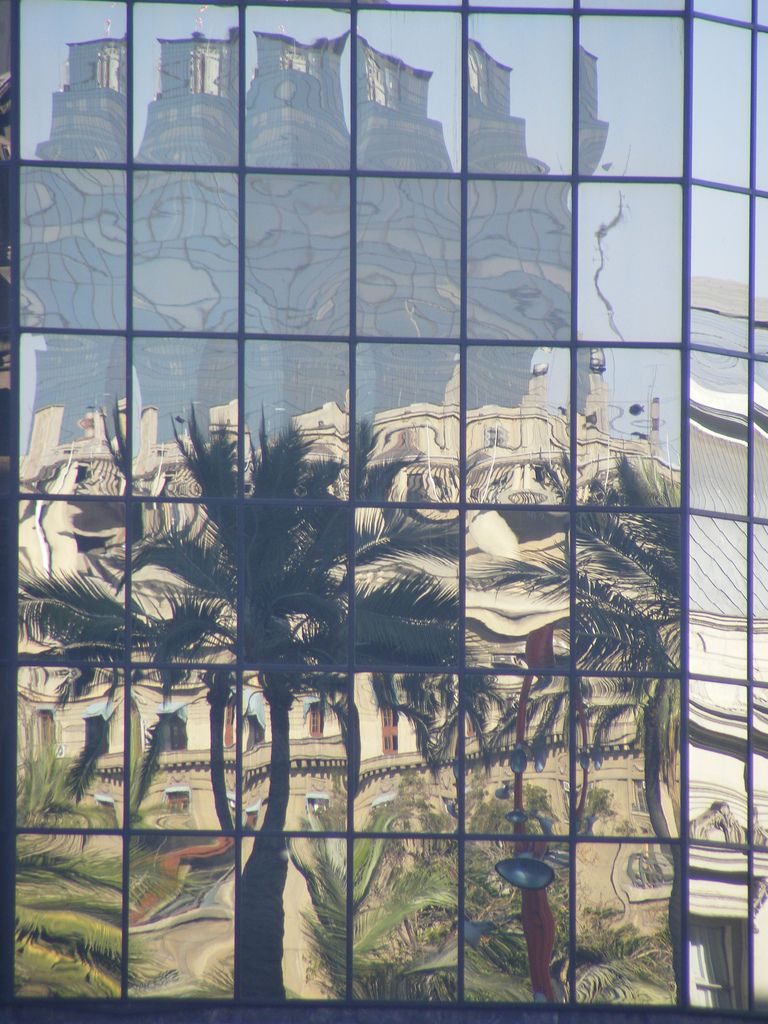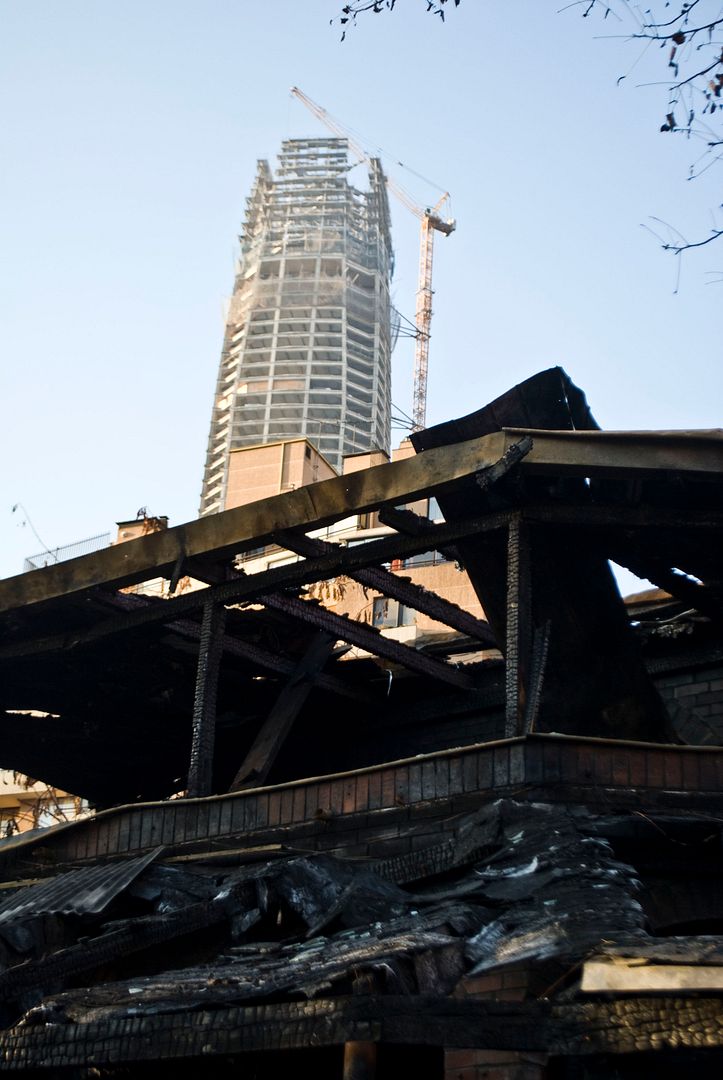There comes a time in the life of a modern city where it begins to grow up—literally. Santiago, the capital of Chile, has been going through a tremendous growth spurt since its economic boom of the mid-1990s. It happened fast. In just a few years, single-family homes all over the city gave way to high rises.
A man named Rodrigo Rojas played a small part in Santiago’s “upward mobility.” This wouldn’t be that remarkable if he were an engineer, a real estate developer, or an architect. But Rodrigo Rojas is a poet. This is how it worked: a developer bought an old house, tore it down, and had an architect draw up plans for a new high rise. And then Rodrigo stepped in to give the building a name.
In a way, these names of buildings became Rodrigo’s first published poems. Sometimes these poems were just about flattering his clients—like when he’d named a building after the developer.
But sometimes these poems — like good poetry in general — could be transformative. In one particularly cold and humid neighborhood, El Llano, Rodrigo gave buildings names that made it seem almost tropical. He imagined that residents could forget the weather. Sitting on their balconies, staring off into the slate-gray sky, they could dream of beaches. He called several buildings the Cancúns. Developers were so excited they planted palm trees—which are atypical in Santiago.

Rodrigo even fabricated whole stories in the service of building an identity. He came up with one story about a ship called the Zanzibar, a luxury liner built with the Titanic. But the Zanzibar was slightly smaller and never sank.
“When you mix luxury with survival of tragedy, it’s very important for Chile,” says Rodrigo. ”It’s the search of status, and the survival of earthquakes.”
And if a developer rubbed him the wrong way, he’d sneak in a joke. There’s a building in Santiago named Infantes de Carrión. In Spanish, “infantes” are children of kings, which gives it an air of nobility and prestige. Unless, of course, you happen to have read El Mio Cid, one of the most famous epic poems in the Spanish language, and know that the Infantes de Carrion are horrific villains.
But on the whole, Rodrigo was a kind of interpreter of dreams — he tapped into the psyche of what the people of Santiago wanted to become, and tried to give that a name.

Our reporter this week is Daniel Alarcón, host and executive producer of Radio Ambulante, a new podcast which has been called “This American Life en Español” (though some stories are in English).
Daniel is also the author of the award-winning novel Lost City Radio. His next book, At Night We Walk in Circles, will be out in the fall.




Comments (3)
Share
Thanks a lot for this podcast. it inspred me to write a class for my English students on the poetry of the buildings in our city, Curitiba, which was a great success. If you are interested you can read about it here http://bit.ly/1714gAd
Such a beautiful episode.
Great episode! What’s the song that plays over the end credits? I love it!